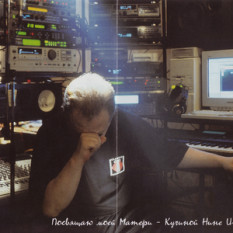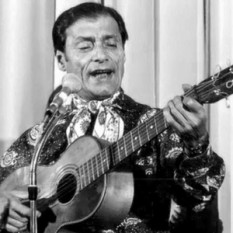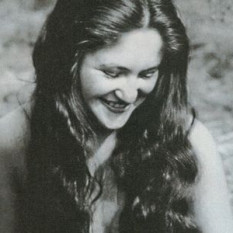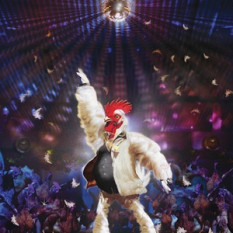Russian chanson (Russian: Русский шансон, tr. Russkiy shanson) (from French "chanson") is a neologism for a musical genre covering a range of Russian songs based on the themes of the urban underclass and often criminal underworld. This song style, called blatnaya pesnya ("criminals' song"), has been popular in Eastern Europe ever since its first appearance in the beginning of the 20th century. Chanson can be seen as one of two genres stemming from 19th century Russian city romance songs (русский городской романс), the other genre being the author song. The two genres are now quite distinct, but have overlapped significantly throughout the 20th century.
The earliest criminal songs in this style largely came about due to the crumbling Tsarist regime, but the style has changed significantly after the rise of Stalin, when both innocents and criminals were massacred and sent to labor camps.
Yet another change occurred during the Khrushchev Thaw, when the songs from the camps started reaching the public, performed by artists like Arcady Severny and Vladimir Vysotsky.
Modern artists affiliated with the Chanson genre often sing not in the traditional style used even by the Khrushchev-era performers, but more professionally, borrowing musical arrangements from pop, rock, and jazz.
Lyrically, Chanson songs are usually narrative-driven and are more similar to ballads than pop songs. In fact, this is one of the reasons for naming the genre after the French Chanson (the other being musical similarity).
Chanson themes vary greatly depending on the time in which the songs were written and the places in which they are set. For example, songs set in the Odessa of the 1910s tend to be more cheerful, and are sharply contrasted by the dark, depressing, and violent songs set in the Stalinist era. The interesting thing is that it is common for a Chanson artist, regardless of the time in which he writes his songs, to include songs of all periods in his repertoire, and write songs set in an era different from his own. This often leads to confusion: for example, the bard Alexander Gorodnitsky reports being beaten up once after claiming authorship to one of his songs, which was attributed to a Gulag inmate living over 30 years earlier.
Recurring themes in Chanson songs include:
Military and patriotic themes. There is a sub-genre of Chanson known as Military chanson.
White Guard (anticommunist side of the Russian Civil War)
The execution of a traitor to a criminal gang (the first such song is probably "Murka"). This is usually in the context of the Russian criminal law, which punishes betrayal very harshly.
Being sent to, or released from, a labor camp.
Love in the context of criminal life, the conflict usually being either betrayal or separation due to imprisonment.
Glorification of the 'merry thief' archetype. These songs are often set in the city of Odessa, where the Jewish Mafia was characterized as being particularly cheerful and colorful. Odessa Couplets often depict the rich and glorious life before Stalin's regime, when Odessa was among the only cities in the young Soviet Union to have free trade. These songs are often narrations of weddings and parties, sometimes based on real events.
Political satire of different forms.
Appeal to emotions towards relatives or beloved ones, often leading unlawful or morally controversial lives.
As seen above, chanson is rooted in prison life and criminal culture, but some chanson performers insist that the genre transcends mere criminal songs, and look upon Alexander Vertinsky and Alla Bayanova as their precursors. Today chanson can be more equated with American Country music. It is a mainstream style and has lyrics that tend to stress features such as loyalty, patriotism, male-companionship and traditional culture.
The musical style of the older Russian criminal songs, much like the Russian Bard songs, are heavily influenced by the classical Russian romance genre of the 19th century, more specifically a subgenre known as the City or Urban Romance. Romance songs are almost always divided into four-line rhymed couplets, rarely have a chorus, and follow a fairly consistent chord progression (Am, Dm, and E, sometimes with C and G added). The strumming pattern is also predictable: it is either a march, or a slow 3/4 waltz pattern often utilizing fingerpicking rather than strumming. Romance songs were traditionally played on a Russian guitar, since its tuning makes playing these chords easier (most of them are played as a single-finger bar chord).
Criminal songs were prominently performed by artists like Arcady Severny, Vladimir Vysotsky, Alexander Gorodnitsky, and Alexander Rosenbaum. Notice that with the exception of Severny, these performers are usually better known for their Bard songs. Arkady was one of the rare performers who focuses exclusively on collecting and performing old criminal songs.
Modern chanson performers include the band Lesopoval, Spartak Arutyunyan-Belomorkanal Band, Boris Davidyan or BOKA (Armenian Shanson), Ivan Kuchin, Aleksandr Novikov, Mikhail Shufutinsky and Mikhail Krug (murdered in 2002 at his villa in Tver).
A more recent artist who plays chanson with Rock music is Grigory Leps. Elena Vaenga, another recently popularized singer, actress and songwriter, sings in the styles of Russian shanson, folk music and folk rock.
British singer Marc Almond is the only western artist to receive acclaim in western Europe and well as Russia, for singing English versions of Russian Romances and Russian Chanson on his albums Heart On Snow and Orpheus in Exile (the songs of Vadim Kozin). .




